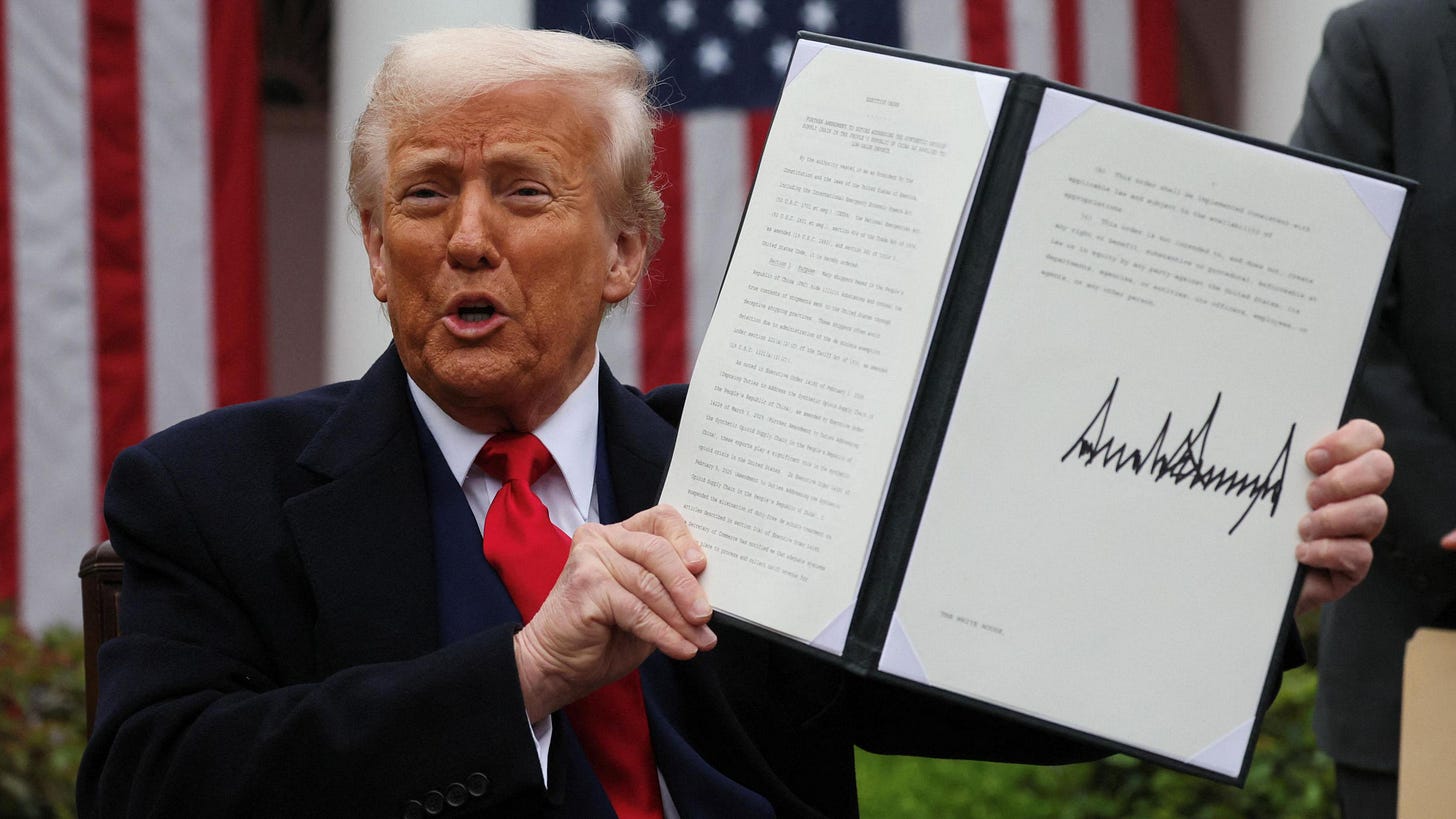The Sovereign Illusion
Why Economic Nationalism Collides with Global Reality?
You’ve seen the headlines – the tough talk on tariffs, the sudden shifts in policy. But what’s really going on behind the scenes of global trade disputes, especially with China? This piece pulls back the curtain on how populist promises of total economic control often crash head-first into the complex reality of our interconnected world, showing us the true, often painful, costs of these illusions on our daily lives and futures.
The Seduction of Economic Independence
We all crave control, don’t we? Especially when it comes to our finances and the stability of our nation. It’s comforting to imagine a world where our leaders can simply declare economic independence, shielding us from global uncertainties. I’ve watched how readily this narrative takes hold, especially when presented with strong, definitive statements. Think back to President Trump’s bold threats of 100% tariffs on Chinese goods, hinting at canceling diplomatic meetings. It felt decisive, didn’t it? This kind of rhetoric taps into a deep, human desire for simple solutions to incredibly complex problems, promising a return to a time when our economic destiny felt entirely in our own hands.
Unmasking Global Interdependence: The Rare Earth Riddle
But here’s the rub: that dream of absolute independence often collides head-on with a very different reality. Our world, for better or worse, is deeply interconnected. The moment aggressive tariff threats were made, the fragility of this illusion became clear. Consider China’s control over rare earth minerals – those vital ingredients in nearly every piece of modern technology, from your smartphone to advanced military equipment. Any move against China directly impacts these crucial supply lines. As Karl Polanyi argued in “The Great Transformation,” attempting to isolate an economy from its global web leads to massive disruptions.
To allow the market mechanism to be sole director of the fate of human beings and their natural environment, indeed, even of the amount and use of purchasing power, would result in the demolition of society.
– Karl Polanyi
This isn’t just theory; it’s a living reality where a nation’s leverage is often another nation’s vulnerability. We can’t simply opt out of these global threads without consequences.
Farmers as Pawns: The Cost to Real Lives
Perhaps the most painful illustration of this interconnectedness is the plight of our farmers. When China retaliated by halting soybean purchases, it wasn’t just an abstract economic statistic; it hit real people, real families, and real communities hard. These farmers, many of whom supported the very policies leading to the trade dispute, became unwitting pawns in a high-stakes geopolitical game. Treasury Secretary Scott Bessent highlighted this stark reality, noting that these communities, despite their support, bore the significant brunt of the tariffs. It’s a sobering reminder that abstract economic policies always have concrete human costs. The true measure of a policy’s impact isn’t just its stated goal, but its unintended consequences on the lives of ordinary citizens.
The Dialectic of Policy: From Bluster to Backpedaling
What followed these aggressive declarations was a rapid and telling shift. Within 48 hours, President Trump’s tone softened significantly. He called President Xi’s actions a “bad moment” and assured that “it will all be fine.” This swift backpedaling, followed by a partial market rebound, wasn’t just a change of heart; it was a pragmatic acknowledgment of the limits of unilateral power in a globalized system. It’s a classic dialectical movement: thesis (aggressive nationalism), antithesis (global interdependence), leading to a synthesis (a reluctant, temporary adjustment). This isn’t a sign of weakness but of the inescapable complexity of managing international relations.
The moment we allow ourselves to be governed by generalities and slogans, we have lost our grasp of reality.
– Hannah Arendt
Arendt reminds us how easily we can lose touch with reality when we rely solely on simple, sweeping narratives. This back-and-forth illustrates how quickly rhetoric must bend when confronted with the intractable forces of global economics.
Truth in an Interdependent World: Beyond the Headlines
The story of Trump’s China strategy, with its abrupt shifts and underlying tensions, is a powerful lesson in distinguishing between political theater and economic reality. It reveals that in an interdependent world, true economic strength comes not from isolationist posturing, but from a nuanced understanding of global dynamics and a willingness to forge robust, if sometimes challenging, international relationships. For us, as citizens, it means looking beyond the headlines and asking deeper questions. Who truly benefits? Who pays the price? Only by critically examining the narratives presented to us can we navigate the complexities of globalization and demand policies that genuinely serve the collective good, rather than just political expediency.
Go Deeper
Step beyond the surface. Unlock The Third Citizen’s full library of deep guides and frameworks — now with 10% off the annual plan for new members.
Navigating the Global Labyrinth: A Call to Awareness
What does this mean for you and me? It means cultivating a deeper awareness of the global forces that shape our everyday lives. From the price of goods in our local stores to the stability of our job markets, the echoes of distant trade disputes are undeniable. We must resist the seductive appeal of simplistic solutions and instead embrace the nuanced, often uncomfortable, truths of global interdependence. Understanding these dynamics is not just an academic exercise; it is an act of civic responsibility. It empowers us to hold our leaders accountable for policies that genuinely foster prosperity and stability, rather than merely scoring political points. Our future depends on our collective ability to see beyond the sovereign illusion and engage with the global reality.



